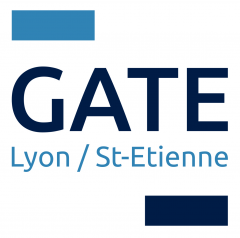
- General presentation
- Objectives: understanding the power and limitations of incentives on performance
- Members of the Consortium
- Experimental methods
- Work packages, papers, and instructions
- EMIR Workshops
General presentation
The EMIR program is a fundamental research program supported by the National Agency for Research (ANR, “Programme Blanc”). EMIR aims both at producing new experimental evidence and at exchanging ideas in order to contribute to the development of behavioral personnel economics. It started in November 2007.
Objectives: understanding the power and limitations of incentives on performance
On the one hand, the principal-agent theory has demonstrated how to design contracts that lead agents to behave as efficiently as possible when there is imperfect information about abilities or effort.
On the other hand, there is some experimental evidence that the introduction of monetary incentives sometimes exerts a negligible or even a negative influence on motivation and performance, due to crowding-out effects, income targeting, choking under pressure, or social comparisons.
EMIR contributes to the understanding of the relationships between incentives, motivation and performance under imperfect information. It gathers researchers interested in how economic agents solve the tension between what rationality suggests for the maximization of individual payoffs and the moral aspects of decision-making.
Members of the Consortium
The coordinator of the project is Marie Claire Villeval, Director of Research at CNRS.
Five partners are involved in the Consortium:
- GATE, University of Lyon 1, Lyon
- University of California at Santa Barbara, U.S.A. (coordinator: Gary Charness)
- University Pompeu Fabra in Barcelona, Spain (coordinator: Robin Hogarth)
- University of Minnesota, U.S.A. (coordinator: Aldo Rustichini)
- University of East Anglia in Norwich, U.K. (coordinator: Anders Poulsen)
Experimental methods
EMIR uses behavioral game theory that results from the willingness to blend « experimental evidence and psychology in a mathematical theory of normal strategic behavior » (Camerer, 2003).
EMIR provides experimental tests of models on incentives and motivation, thanks to the REGATE-NG software and the technological platform in experimental economics at GATE.
EMIR Workshops
Two international EMIR workshops have been held in December 2007 and March 2011.


Work packages, papers, and instructions
To download papers, click on their title. You can get a copy of the translated instructions by clicking on the link below the title of papers.
Current outputs:
o 19 working papers published in various series (NBER, GATE, IZA, UCSB) and disseminated via HAL and SSRN.
o 67 contributions in conferences and invited seminars.
o 17 original computer programs designed with the REGATE-NG software.
Work packages:
o Competition and incentives
o Incentives, principles of action, and social preferences
o Incentives, goal setting and comparisons
o Intermittent reinforcement and behavior persistence
o Evaluation, incentives, and motivation
Papers
A) Competition and incentives
1. Cabrales, A., Charness, G., Villeval, M.C. (2011). Competition, Adverse Selection and Efficiency. Experimental Economics, forthcoming. Paper – Instructions
2. Charness, G., Kuhn, P., Villeval, M.C. (2011). Competition and the Ratchet Effect. Journal of Labor Economics, June, forthcoming. Paper – Instructions
3. Eriksson, T., Villeval, M.C. (2010). Respect as an incentive. IZA Discussion Paper 5200, Bonn, and GATE WP 10-23.
Paper – Instructions
B) Incentives, principles of action, and social preferences
4. Teyssier, S. (2009). Experimental Evidence on Inequity Aversion and Self-Selection between Incentive Contracts. GATE WP 08-21.
Paper – Instructions
5. Teyssier, S. (2010). Optimal Group Incentives with Social Preferences and Self-Selection. Mimeo.
Paper – Instructions
6. Dickinson, D., Villeval, M.C. (2011). The Peter Principle: An Experimental Test. Southern Economic Journal, forthcoming.
Paper – Instructions
7. Teyssier, S. (2011). Inequity and risk aversion in sequential public good games. Public Choice, forthcoming. DOI 10.1007/s11127-010-9735-1.
Paper – Instructions
8. Rustichini, A., Villeval, M.C. (2011). L’Abito non fa il Monaco or how do people adjust their principles to their actions : An experiment. Mimeo.
Paper – Instructions
C) Incentives, goal setting and comparisons
9. Charness, G., Masclet, D., Villeval, M.C. (2010). Competitive Preferences and Status as an Incentive: Experimental Evidence. IZA Discussion Paper 5034, Bonn, and GATE WP 10-16.
Paper – Instructions
10. Rosaz, J., Slonim, R., Villeval, M.C. (2011). Quitting and Peer Effects at Work. Mimeo.
Paper – Instructions
D) Intermittent reinforcement and behavior persistence
11. Hogarth, R.M., Villeval, M.C. (2010). Intermittent Reinforcement and the Persistence of Behavior: Experimental Evidence. IZA Discussion Paper 5103, Bonn, and GATE WP 10-18.
Paper – Instructions
12. Robin, S., Strasznicka, K., Villeval, M.C. (2011). Bubbles and incentives: An experiment. Mimeo.
Paper – Instructions
13. Lefebvre, M., Vieider, F. (2010). Reining in Excessive Risk Taking by Executives: Experimental Evidence. GATE WP 10-06.
Paper – Instructions
14. Lefebvre, M., Vieider, F. (2011). Risk Taking of Executives under Different Incentive Contracts: Experimental Evidence. Munich Discussion Paper No. 2011-7.
Paper – Instructions
15. Lefebvre, M., Vieider, F., Villeval, M.C. (2011). The Ratio Bias Phenomenon: Fact or Artifact? Theory and Decision, DOI: 10.1007/s11238-010-9212-9, forthcoming.
Paper – Instructions
16. Lefebvre, M., Vieider, F., Villeval, M.C. (2010). Incentive Effects on Risk Attitude in Small Probability Prospects. Economics Letters, 109 (2), 115-120.
Paper – Instructions
E) Evaluation, incentives, and motivation
17. Eriksson, T., Poulsen, A., Villeval, M.C. (2009). Feedback and Incentives: Experimental Evidence. Labour Economics, 16 (6), 679-688.
Paper – Instructions
18. Rosaz, J. (2011). Biased information and effort. Economic Inquiry, 49(2).
Paper – Instructions
19. Rosaz, J., Villeval, M.C. (2011). Lies and Biased Evaluation in a Real-Effort Experiment. Mimeo.
Paper – Instructions
